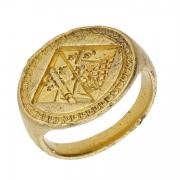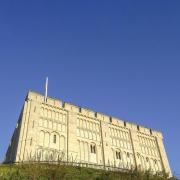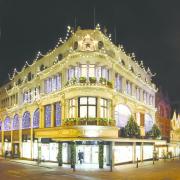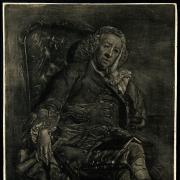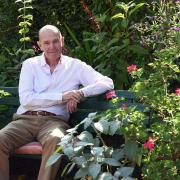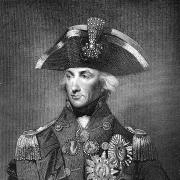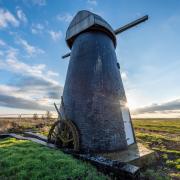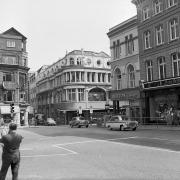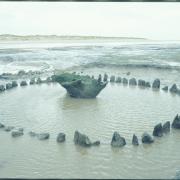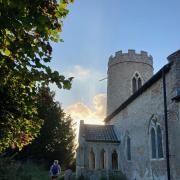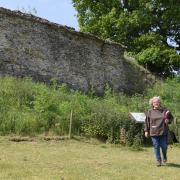Norwich’s veneration of Jenny Lind, ‘The Swedish Nightingale’, began in 1847 when she gave a series of concerts which led, ultimately, to the building of the children’s hospital which bore her name. Richard England tells her story
The concert at St Andrew’s Hall started, appropriately, with the overture from Der Frieischutz. The opera had, after all, been the springboard for Jenny Lind’s career at the tender age of 17.
When she came forward to sing, ‘With verdure clad the fields appear,’ from Haydn’s Creation, the Norwich audience was awestruck. In particular, she made sure to pick out a group of choir boys whom she had heard sing in the cathedral the day before and gave them a look of warmth and recognition that the local paper commented that it, ‘would not readily be forgotten.’
Casta Diva ended the first part, described as a holier and purer interpretation than her peer Giulia Grisi by the local journal. This was a programme aimed for a virgin audience. Of course the local gentry of Norfolk were in town for the occasion, perhaps already well educated in the Italian opera scene from their trips to London.
But so too were the less well-travelled, local city dwellers, traders and country folk. The demand for tickets was so great that Jenny Lind offered a third concert for the Saturday morning with reduced prices.
Her programme also included a piece from I Masnadieri, which she had premiered during her season at Her Majesty’s Theatre. As with the rest of her London performances, the audiences flocked to see it and displayed their appreciation with showers of bouquets and ‘frantic recalls’.
Queen Victoria and Prince Albert were in the audience yet again and paid her compliments far beyond royal etiquette.

After her London season had ended she embarked on a tour of the provinces. At the age of 27, with little grasp of English, this was no small undertaking. She was accompanied by her companion Louise Johansson and Edward Lewin, the brother of Mrs Grote, who acted as manager of her affairs.
Harriet Grote, the somewhat formidable wife of George Grote, politician and historian, had been instrumental in enabling Jenny Lind to circumvent a threatened law suit. She had in effect broken a hastily-signed contract with the Drury Lane theatre managed by Mr Bunn, after signing with Mr Lumley at the 11th hour for his season at Her Majesty’s Theatre.
Now with such a successful series of performances behind her, London at her feet and ‘Jenny Mania,’ in full swing; Mr Bunn was a laughing stock with Punch magazine cartoonists parodying him as a ‘hot cross Bunn!’
Jenny Lind was a child prodigy whose piano playing and beautifully natural singing was literally discovered by a passer-by outside her home in Stockholm. Her rise to stardom was nearly thwarted by a tempestuous home life, which bordered on child abuse.

Legal battles with her parents followed and later the pressure of performing threatened her voice entirely. Recovery came with the help of Manuel Garcia, the baritone turned teacher and inventor. He studied the larynx with a system of mirrors and invented the first laryngoscope, a forerunner of those used now in every operating theatre in the world.
Her tour of England was difficult. She became ill and had to cancel concerts in Sheffield and York. Despite this she covered England and Scotland, travelling down from Perth to Norwich overnight.
The city was in a frenzy; thousands of people lined the streets. Each train arriving at the station had every carriage inspected by the throng to ensure she would not slip through unseen. The excitement of Jenny Lind had swept the country and into every home, the newspapers were filled with her activities, ensuring the fanaticism crossed every class divide.
In fact, her hosts in Norwich were taking a risk. Bishop Stanley had sent her an invitation to stay with them after hearing that she intended to include Norwich on her tour, which read, ‘The bishop has only to add that it will be a great gratification to him to make acquaintance with one whose high character and principles from all he has heard, are on a par with her superior talents.’

For him to associate with a stage performer at that time was certainly frowned upon within clerical circles. Stage performers themselves were not given the standing in society that they might enjoy today.
And so, a select group had gathered at the bishop’s palace that evening to welcome her including some choir boys. Of course, her train was delayed - some things never change.
The bishop’s son, Arthur Stanley, who later became Dean of Westminster, described her arrival. “At that moment the great bells of St Peter Mancroft broke out into their most joyous chimes. Some even say that guns were fired from the surrounding heights.
A few minutes more and the expectant company became aware that the head of the musical world had entered the house.”
However, by this time she was utterly exhausted and the bishop’s wife, Catherine Stanley, wrote to a friend later on,
“I went to her room – and found a poor creature in the last stage of exhaustion, wiping dew from her brow and looking ready to sink into the earth with fatigue and no wonder! She had sung in Edinburgh on Monday until 3 o’clock, got to the railway at 4 and travelled all night.”
Jenny apologised profusely that she was in no state to join the company that evening and their reaction was ‘blank horror’ when she said in French,
“J’espère que je pourrai chanter demain; mais j’en doute,” (I hope I can sing tomorrow, but I doubt it.)
It left some of the young choristers in tears.
The family describes their time with this, respectful, simply-dressed and humble young lady. Her stilted conversations with them relayed her belief that her gift was given to her by God and that she must not waste it. This left such a mark on them and in return, their personal, unembellished welcome on her, that she was destined to return to the city.
During the intervening years Jenny Lind was to endure much. The death of Mendelssohn later on in 1847, hit her especially hard.

Her private life was also turbulent. A long-term engagement to ended through a bitter difference of opinions over the direction of her career. Another relationship ended disagreeably due to the puritanical beliefs of the mother-in-law to be.
Through these difficulties her newfound friendship with the bishop’s family provided a firm rock and sounding board. Her talents found a new direction with a series of charitable concerts. When she returned to Norwich in January 1849, her English was much better and again she took pleasure in the hospitality of the bishop and his family.
This time she was free from contracts and her sole purpose for the visit was to raise money for the poor of city. She didn’t stipulate how it was to be spent and some of her ideas were discarded as impractical - she wanted to go to the city centre and throw money to the crowds! However, her two concerts raised the sum of £1,253 - equivalent to £156,000 in today’s money.

Those concerts again took place in St Andrew’s Hall. The programs survive as with the other concerts in the Norfolk archives, and display a varied range of pieces from L’Elisir D’Amore, I Puritani, La sonnambula, Roberto il Diavolo. Jenny finished with The Gipsy song from The Camp of Silesia.
After typical dillydallying, a committee was formed in 1853, shortly after the opening of Great Ormond Street Hospital for sick children. The unanimous verdict was that the money should be used to open a similar institution in Norwich and a suitable premises on Pottergate was purchased.
There were predictable obstacles however, and fear of infection and undesirables congregating around the hospital caused some delay in the opening. Finally, the Jenny Lind Infirmary for Sick Children opened in the April of 1854, making it the second such institution for children in the country.
Jenny and her new husband, the pianist and composer, Otto Goldschmidt, returned to Norwich again in 1856 and 1862. Performances were held each time with Jenny singing pieces by Mozart, Bellini, Chopin and Haydn.
By this time the infirmary had established itself as a valued and respected institution in the city. Jenny visited the hospital and wrote that she was pleased with the care the children were receiving.
‘The Jenny’ as it became affectionately known, was rebuilt as a grand standalone children’s hospital in 1900. The son and daughter of Jenny Lind were in attendance at the foundation laying, along with the Colman family [see Norfolk Magazine Issue 265] who had donated the land on Unthank Road.
By this time the hospital had been performing quite advanced surgical procedures on children and even babies and continued to be at the forefront of paediatric care for another half a century. In 1975 it merged with the Norfolk & Norwich Hospital but has endeavored to continue the name as the Jenny Lind Children’s Hospital.
As we jointly celebrate the 250th anniversary of both the Norfolk and Norwich Hospital and the N&N Festival this year, we proudly hold onto words Jenny Lind wrote to the Chair of the Hospital Committee.
“Of all the money God allowed me to give away when my poor throat could call an audience to listen to its production, none has borne a nobler or more genuine fruit than the Jenny Lind Hospital in Norwich.”
‘Fairytales and Nightingales’ will be performed on May 23 as part of the Norfolk and Norwich Festival. The programme charts the life of Jenny Lind and will be a fundraiser for her children’s hospital. Tickets available from nnfestival.org.uk
Richard England is a consultant paediatric surgeon at the Jenny Lind Children’s Hospital and a member of the Swedish Jenny Lind Society.






